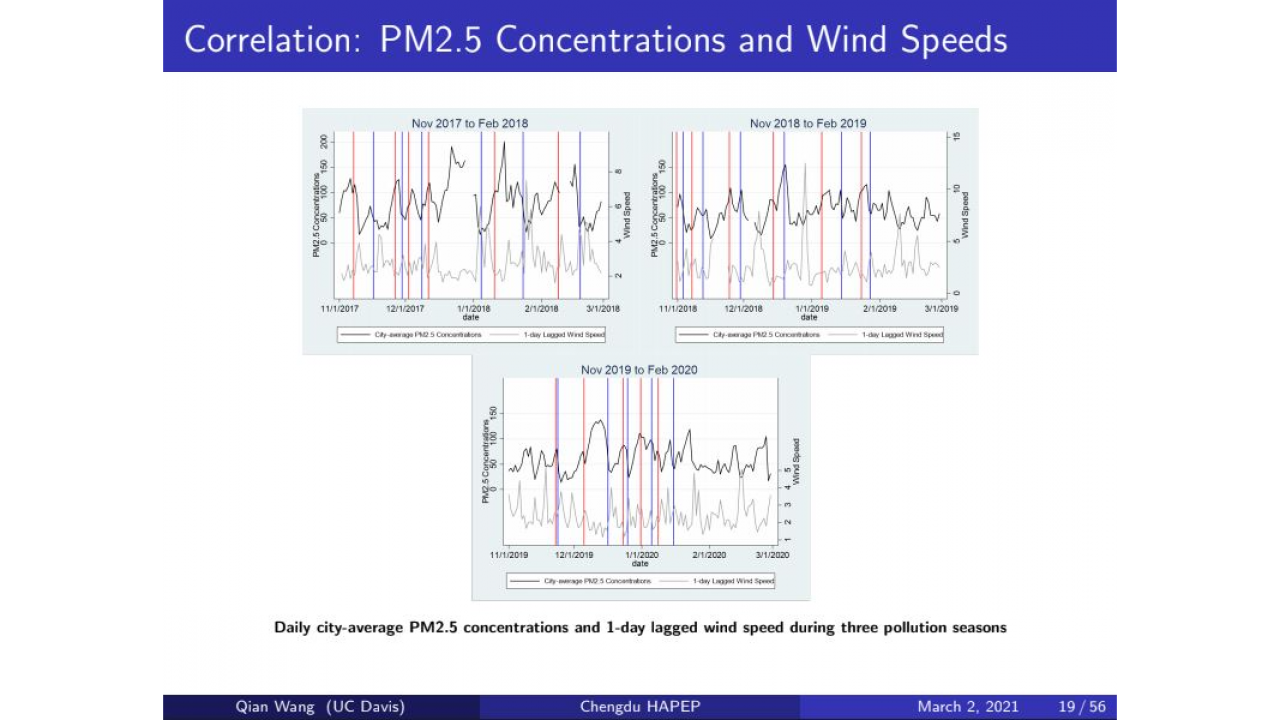
Lab Seminar - Evaluating the Heavy Air Pollution Emergency Plan of Chengdu, China
Qian Wang shared his research on air pollution. During the past forty years, China has experienced rapid economic development. However, air pollution, a byproduct of economic growth, has become a severe problem in China. Chengdu, the largest city in western China, has also suffered from excessive air pollution, especially particulate matters. To tackle the problem, the government of Chengdu has adopted the Heavy Air Pollution Emergency Plan (HAPEP) since 2012. HAPEP requires the Environmental Protection Agency (EPA) to monitor air quality forecasts into future days. EPA issues an emergency alert if the predicted PM2.5 concentration exceeds a threshold for an extended period. A set of measures to reduce pollution are implemented including driving restrictions for vehicles and production suspension for firms. In this talk, Qian focused on the development of a dynamic optimization framework which models the decision of the planner accounting for the special characteristics of winter particulate matter pollution in Chengdu. The theoretical model provides important policy implications. Qian also empirically evaluated the current policy according to the theoretical model, and historical air quality and meteorology data.